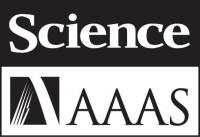The AAAS said: “The atmospheric concentration of carbon dioxide, a critical greenhouse gas, is higher than it has been for at least 650,000 years. The average temperature of the Earth is heading for levels not experienced for millions of years.”
It also called for “rapidly reducing greenhouse-gas emissions,” and echoed the report by British economist Nicholas Stern saying to delay “will increase the environmental and societal consequences as well as the costs.” In a 700-page report last October, Stern said countries can cut emissions without damaging economic growth and, in some cases, actually improve their growth.
Stern, in Toronto this week to present his argument that environmental stewardship need not mean a stagnant economy, said “The costs of action… are much less than the costs of inaction.”
Subscribe to our newsletter
Stay up to date with DeSmog news and alerts







